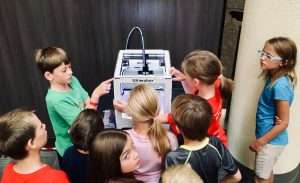 Pexels
Pexels
Is Early Education Always the Best Choice for Kids? Pros and Cons to Consider
Is Early Education Always the Best Choice for Kids? Pros and Cons to Consider
A hot topic of discussion among parents and educators is what age-appropriate lessons belong in the classroom. There are arguments to be made for introducing certain topics early on; as well as; waiting until a child is older to teach them. So, where do we draw the line? Let’s take a look at a few examples. Is early education always the best choice for kids? Pros and cons to consider.
Early Lessons: The Pros
According to kids development classes experts from Sydney Play and Learn Pty Ltd, there are a few benefits to introducing certain topics early on in a child’s education. First, it helps normalize the conversation around these topics. If kids are taught about these things early and often; it won’t be such a big deal when they encounter them later on in life.
Additionally, earlier exposure can help prevent misunderstandings or misinformation from taking root. Finally, some kids mature faster than others. So, introducing these topics early on; can give them a chance to learn about things that they might otherwise have to wait for.
Some examples of lessons that might be introduced early include financial responsibility, online safety, pest inspections for buildings, and careers. Of course, there would need to be age-appropriate versions of these lessons—you wouldn’t teach a kindergartener general termite procedures for buildings like you would adults—but introducing these concepts early can help set kids up for success later on.
Advanced Lessons: The Pros
On the other hand, there are also some benefits to waiting to introduce certain topics until kids are older. One reason for this is that some kids simply aren’t ready to learn about certain things at an early age. For example, healthy relationships might be better suited for middle or high schoolers who are nearing or experiencing puberty. Additionally, some topics can be quite complex and it might be easier for kids to grasp them when they’re a little older and have developed critical thinking skills.
Some examples of advanced lessons include; investments/savings accounts, credit scores/credit cards, how to file taxes, and how to buy a house. These are all topics that adults have to deal with regularly, but they can be quite confusing for kids, and rightfully so! Adults have had years to learn about and become comfortable with these things; kids haven’t had that luxury yet.
The Cons
There is a lot of pressure on parents to give their kids a head start; by enrolling them in preschool or other early education programs. While there are some benefits to this, there are also some drawbacks that parents should be aware of.
One of the main cons is that kids can get overwhelmed and stressed out; by being in a structured educational setting at such a young age. They may not be developmentally ready to handle the pressure of learning how to read, write, and do the math. This can lead to behavioral problems and make it difficult for them to adjust when they start kindergarten.
Another downside is that kids who receive early education may be more likely to be placed in advanced-level classes when they start school. This is because they already have a head start on their academics and are ahead of their peers. This can lead to frustration and feelings of isolation later on down the road.
So, while there are some advantages to giving kids early lessons in school; there are also some potential disadvantages that parents should keep in mind. It’s important to weigh all of the pros and cons before deciding whether or not to enroll your child in an early education program.
Not Everything can be Taught in a Classroom
In many schools, kids are taught the majority of their lessons inside a classroom. While this environment can be beneficial in some ways, there are also several advantages to learning outside of it.
For example, children who are interested in science and its newer applications like advanced spa treatments can learn more from hands-on experience on a school trip or in a museum. This type of learning is often more engaging for kids, and they are more likely to remember the information. Additionally, lessons that involve physical activity can be difficult to replicate in a classroom setting. For instance, sports skills such as teamwork and coordination can be best learned on the playing field.
Finally, many life lessons cannot be taught in a school setting. Children can learn about the importance of hard work and perseverance by participating in extracurricular activities such as scouting or theatre.
The Choice is Still with you, Parents
Ultimately, it is up to the parents to decide whether or not their child should take early or advanced classes. While some schools may offer these classes as an option, it is ultimately the responsibility of the parents to decide whether or not their child is ready for them. There are a few things that parents should consider before making this decision.
First, they should consider whether or not their child is academically ready for accelerated coursework. If their child is struggling in school, enrolling them in advanced classes may only serve to aggravate the situation. Second, parents should also think about whether or not their child is emotionally ready for more challenging coursework. Some children may feel overwhelmed by accelerated classes and this could harm their academic performance. Finally, parents should also consult with their child’s teacher to get their opinion on the matter. Kids may not have the same decision-making skills but their say on the matter is still important. After all, they’ll attend the classes and not the adults.
Conclusion
So where does that leave us? How do we know which lessons are too advanced or too early for our children? Unfortunately, there’s no easy answer—it’s different for every child. However, one way to gauge whether or not your child is ready for a particular lesson is by paying attention to their maturity level and development.















